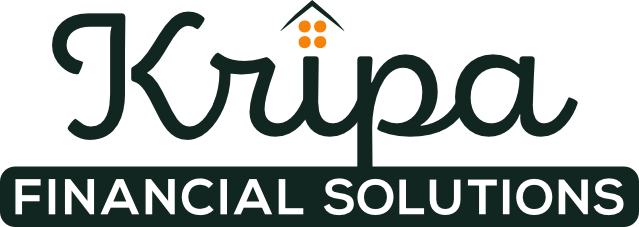Why Saving Up for a Down Payment is Key for First-Time Home Buyers – and How to Do It
Buying a home is a significant milestone in many people's lives, but for first-time home buyers, it can be a daunting process. One of the key factors that determine whether or not you can make that dream a reality is having enough money for a down payment.
Saving up for a down payment is crucial for first-time home buyers as it not only reduces the amount you need to borrow, but it also demonstrates to lenders that you are financially responsible and committed to the purchase.
In this article, we will explore why saving up for a down payment is so important for first-time home buyers and provide practical tips on how to do it. We will discuss the benefits of a larger down payment, the various strategies you can use to save, and the potential challenges you might face along the way. Whether you're just starting to think about buying a home or you're already in the saving process, this article is packed with valuable insights to help you achieve your homeownership goals.
The importance of a down payment for first-time home buyers
A down payment is the initial payment you make when purchasing a home. It is typically a percentage of the total purchase price and is paid upfront. Saving up for a down payment is essential for first-time home buyers for several reasons.
Firstly, a larger down payment reduces the amount you need to borrow, which means lower monthly mortgage payments. This can make a significant difference in your financial situation and relieve some of the financial strain of homeownership. Additionally, a larger down payment may also result in a lower interest rate, saving you thousands of dollars over the life of your mortgage.
Secondly, having a substantial down payment shows lenders that you are committed to the purchase and are financially responsible. It demonstrates that you have the ability to save and manage your finances, making you a more attractive borrower. Lenders are more likely to offer favorable terms and conditions when they see that you have a significant stake in the property.
Lastly, a down payment protects you from potential market fluctuations and negative equity. If you put down a substantial amount, you are less likely to owe more on your mortgage than your home is worth. This can provide you with peace of mind and financial security, especially during uncertain economic times.
Advantages of saving up for a down payment
Saving up for a down payment offers several advantages for first-time home buyers. Here are some key benefits:
- Lower monthly mortgage payments: By putting a larger down payment, you can reduce the amount you need to borrow, resulting in lower monthly mortgage payments. This frees up more of your income for other expenses and gives you greater financial flexibility.
- Improved loan terms: Lenders often offer more favorable loan terms to borrowers who have a larger down payment. This may include lower interest rates, reduced mortgage insurance premiums, or even waived fees. These benefits can save you money over the life of your loan.
- Increased buying power: A larger down payment gives you more buying power in the housing market. It allows you to qualify for higher-priced homes or gives you the option to negotiate a better deal with sellers.
- Faster equity buildup: The more money you put down, the faster you build equity in your home. Equity is the difference between the market value of your home and the remaining balance on your mortgage. Building equity can provide you with financial stability and open up opportunities for future investments or home improvements.
- Reduced financial stress: Having a substantial down payment can give you peace of mind and reduce financial stress. It provides a buffer against unexpected expenses or changes in your financial situation, making homeownership a more secure and enjoyable experience.
Strategies to save up for a down payment
Saving up for a down payment requires discipline, commitment, and a solid saving strategy. Here are some practical tips to help you save more effectively:
Cutting Expenses to Accelerate Your Savings
- Create a budget: Start by tracking your income and expenses to get a clear picture of your financial situation. Identify areas where you can cut back on spending and allocate more money towards your down payment savings.
- Reduce discretionary spending: Cut back on non-essential expenses such as eating out, entertainment, and shopping. Look for ways to save money without sacrificing your quality of life, such as cooking at home, finding free or low-cost activities, and shopping for deals.
- Lower your housing costs: Consider downsizing or finding a more affordable rental to reduce your monthly housing expenses. This allows you to save more towards your down payment while also freeing up extra funds for other expenses.
- Negotiate bills and expenses: Contact your service providers and negotiate lower rates on your bills, such as internet, cable, insurance, or cell phone plans. Even small savings on these monthly expenses can add up over time.
- Automate your savings: Set up automatic transfers from your checking account to a dedicated savings account specifically for your down payment. Treat this savings account as untouchable and make it a priority to contribute to it regularly.
Increasing Your Income to Boost Your Savings
- Seek additional sources of income: Consider taking on a part-time job, freelancing, or starting a side business to generate extra income. Use this additional income solely for your down payment savings to accelerate your progress.
- Negotiate a raise or promotion: If you're currently employed, explore opportunities for a raise or promotion. Highlight your accomplishments and contributions to the company and make a case for why you deserve a higher salary.
- Take advantage of tax refunds or bonuses: When you receive a tax refund or a work bonus, allocate a portion or all of it towards your down payment savings. This can provide a significant boost to your savings goal.
- Rent out a room or property: If you have extra space in your current home or own additional properties, consider renting out a room or property. The rental income can go directly towards your down payment savings.
Increasing your income to boost your savings
If saving up for a down payment is not feasible in your current situation, there are alternative options to consider. While these options may have their own set of requirements and considerations, they can provide an opportunity for homeownership without a traditional down payment. Here are a few alternatives:
- Gifted down payment: Some lenders allow borrowers to use gifted funds for the down payment. This can be a monetary gift from a family member, employer, or charitable organization. Make sure to check the specific guidelines and requirements for using gifted funds.
- Down payment assistance grants: There are organizations and programs that provide down payment assistance grants to eligible home buyers. These grants are typically based on income, location, or other qualifying criteria. Research and explore these options to see if you qualify.
- Co-buying with a partner or family member: Sharing the financial responsibility of homeownership with a partner or family member can help alleviate the burden of saving for a down payment. It's important to establish clear agreements and legal arrangements to protect everyone's interests.
Conclusion: The long-term benefits of saving for a down payment.
Saving for a down payment may seem daunting, but with careful planning and a solid strategy, it can be achievable for first-time home buyers. Here are some practical tips to help you save:
- Set a specific savings goal: Determine how much you need to save for your down payment and set a clear goal. This will give you a target to work towards and help you stay motivated.
- Create a budget: Analyze your current income and expenses to identify areas where you can cut back and save more. Consider reducing discretionary spending, such as eating out or entertainment, and redirect those funds towards your down payment savings.
- Automate your savings: Set up an automatic transfer from your checking account to a dedicated savings account specifically for your down payment. This way, you won't have to rely on willpower alone to save. The money will be automatically saved before you have a chance to spend it.
- Consider alternative options: If you're struggling to save up for a traditional down payment, explore alternative options. Some lenders offer low or no down payment mortgage programs for first-time home buyers. However, keep in mind that these options often come with higher interest rates or additional fees.
- Increase your income: Look for ways to increase your income, such as taking on a side job or freelancing. The extra money you earn can be put directly towards your down payment savings.
- Save windfalls and tax refunds: Whenever you receive unexpected money, such as a tax refund or bonus, resist the temptation to spend it. Instead, deposit it directly into your down payment savings account.
- Track your progress: Regularly monitor your savings progress and celebrate milestones along the way. Seeing your savings grow can boost your motivation and keep you on track towards your goal.





